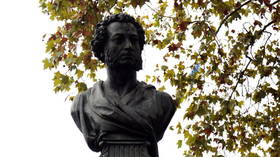Egypt refuses to free dozens of Russian students
Egyptian security forces are still refusing to release at least 25 Russian students held for allegedly breaking visa regulations. They are also threatening to deport at least half of them.
Russian diplomats continue to fight for more information on the fate of those still being detained.
In accordance with Egyptian law, those who face deportation will have to pay all costs connected with it. If the detained cannot pay for the transit, their relatives must pay it for them.
Those Russians who have been already released told the media that the police raids were carried out not only in flats.
“Police detained Russians in the streets and at shops. A young man, who has recently arrived in Egypt to enter the Al-Azhar University, was pulled out of a taxi,” the released Russians said, according to the Itar-Tass news agency.
“I thought they would release me in a matter of hours, as we hadn't broken any rules. Nothing similar has happened to me before. And it's the first time in the ten years that I've been here,” Dukvakha Elmurzaev, one of the students, said to RT.
The majority of the detained Russian students are from Chechnya, North Ossetia, Dagestan, Tatarstan and Kalmykia.
Those who have been freed have complained of tough conditions in jail, where it is alleged up to 50 people were packed into a narrow and stuffy cell. They claim they were not given cold water or medical assistance.
“We even started a riot and went on a hunger strike – a day and a half without eating anything,” Chechen student Musa Umarov told Russia’s RIA Novosti news agency.
He says two women, also from Chechnya, remain behind bars. A breast-feeding mother is reported to have been among those arrested.
“All of them were arrested under the same pretext – violation of the rules of staying in the country – though many of them have a residence permit,” Seidemin Kuzhulov said on behalf of all students. “All arrested women and men were put in one cell.”
“The prison guards had to put Chechen citizens in three cells,” Kuzhulov added, after the latter “had been trying to break down the steel door of the cell.”
The security guards beat up a Russian detainee, Itar-Tass reported, citing the released.
The conditions the detainees were kept in “were just awful”, the Russians said. “There was no place to sit and even to lie down. The stone floor was covered with thin blankets, after sitting on which one’s whole body was aching. There was a toilet there, but it was always occupied. Then women and men were brought to separate cells.”
Itar-Tass also says that, according to the Russian citizens, their relatives learnt about their detention thanks only to two of them who managed to bring mobile phones and a charger into the prison, in spite of the fact that during the round-ups the mobile phones and laptops were confiscated.
The released Russian citizens met at the Russian Consulate on Monday to write “a collective appeal to the Russian consul about human rights violations committed by the Egyptian law enforcement agencies.”
According to various sources, about 200 international students were arrested in Cairo last week when Egyptian police carried out checks at one of the city's major universities. More than 30 of those held were Russian.
Egyptian authorities have yet to make an official statement on the detentions. But local media reports say the arrests are connected with the upcoming visit of Barack Obama. The US President is visiting Cairo on June, 4 and extraordinary security measures have been put in place.












